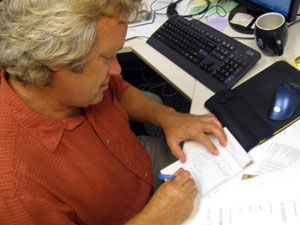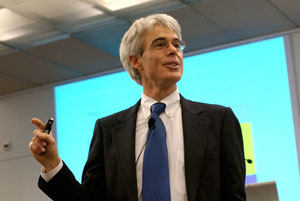Economist
Tasks & duties

Economists may do some or all of the following, depending on their area of specialisation:
-
collect information on the economy or a specific part of the economy
-
study and analyse information
-
develop economic policies and plans
-
make predictions on the economy or parts of the economy based on their research
-
use computer software to predict economic behaviour
-
study and explain economic events
-
advise the Government and businesses
-
write reports and give presentations
-
read economic literature
Skills & knowledge

Economists need to have:
-
knowledge of the strengths and weaknesses of economic methods and theories
-
the ability to keep up to date with economic, social and technological developments, and politics and current affairs
-
knowledge of overseas economic ideas and trends
-
knowledge of maths, including statistics, for using methodologies to think about the world and specific issues
-
an understanding of human behaviour
-
skill in analysing and interpreting figures
-
research skills
-
skill in expressing ideas clearly and concisely
-
problem-solving skills
-
computer skills
-
decision-making ability
-
good oral and written communication skills
-
good time and project management skills
-
marketing and presentation skills
Entry requirements
To become an economist you need to have a degree with an economics component such as statistics, economic history, finance, business, accounting and philosophy.
A postgraduate degree in economics is preferred.
Secondary education
A tertiary entrance qualification is required to enter further training.
Bursary or NCEA equivalent English, maths with calculus or statistics, and economics are useful.
Training on the job
Skills are gained on the job. External training courses may be provided in:
-
project management
-
communications
-
report writing
-
public speaking
-
econometrics (the study of economic theory and statistics together)
-
job-specific computer courses
Opportunities may also be available to do postgraduate study.
Useful experience
Useful experience for economists includes having worked as an:
-
accountant
-
journalist
-
actuary
Work in the public sector or in management is also useful, as is any public speaking experience.
Video
From just a job on you tube
Related courses
Economics
Statistics
For more information, please refer to Career Services.
Document Actions
